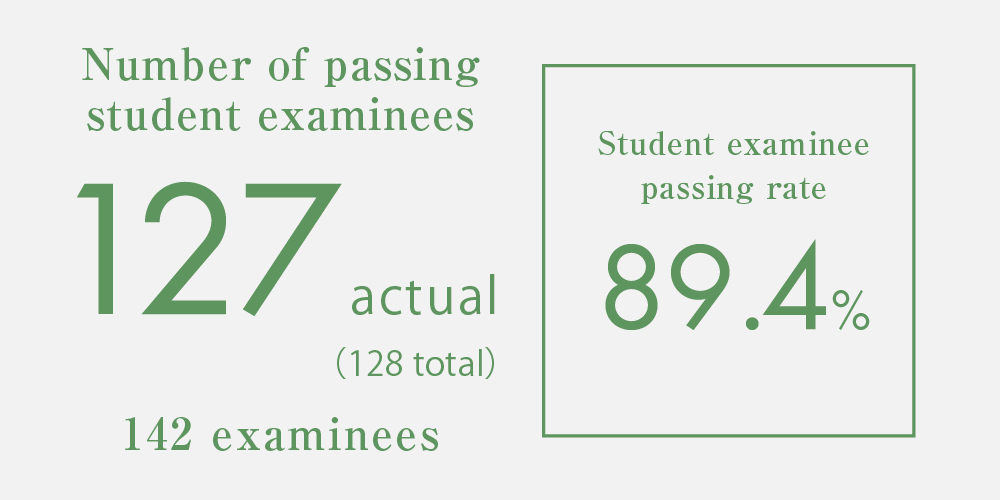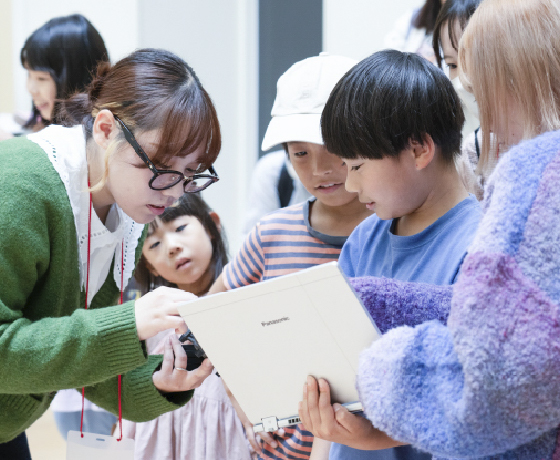Academics
Undergraduate
Academics
Undergraduate
This Department nurtures teachers and childcare workers who shoulder the growth and development of children through instruction and practical capabilities, based on abundant on-site experience.
In the Fiscal 2024 Elementary School Teacher Employment Examination, 127 out of 142 examinees passed while still students, maintaining the Department’s high rate of passing.
The Department maintains this capability through thorough guidance possible only at Nakamura, which boasts strength in obtaining qualifications.


Starting in the first year, students will have a class system that is rare at universities, and from the second year onwards,they will take classes in a class system based on the career path they are aiming for, which will create an environment where students can make friends who will support each other and learn together.

The Department of Early Childhood and Elementary Education aims to train teachers and childcare workers who possess abundant human qualities and embody our founding spirit. Specifically, the Department trains human resources who are equipped with advanced expertise and practical capabilities in education and childcare for infants and children, and who are able to play active roles with enthusiasm and a sense of mission in the fields of education and childcare.
The Division seeks persons who are equipped with knowledge, skills, capabilities, sense of purpose, and ambition as follows.
The Department organizes a curriculum centered on the development of three abilities: assured ability as a teacher or childcare worker, ability to integrate theory and actuality, and ability to creatively solve problems. Students systematically learn these three abilities through lectures and exercises at the University and through practical work at kindergartens and schools.
The Department awards a Bachelor’s degree (Education) to persons who are equipped with specialized knowledge related to child development, principles of education and childcare, and programs and policies, knowledge, and skills related to curricula and teaching methods, as well as qualities and capabilities including basic skills for working adults, and who have love for children and the enthusiasm and sense of mission to contribute to the development of society through education and childcare.